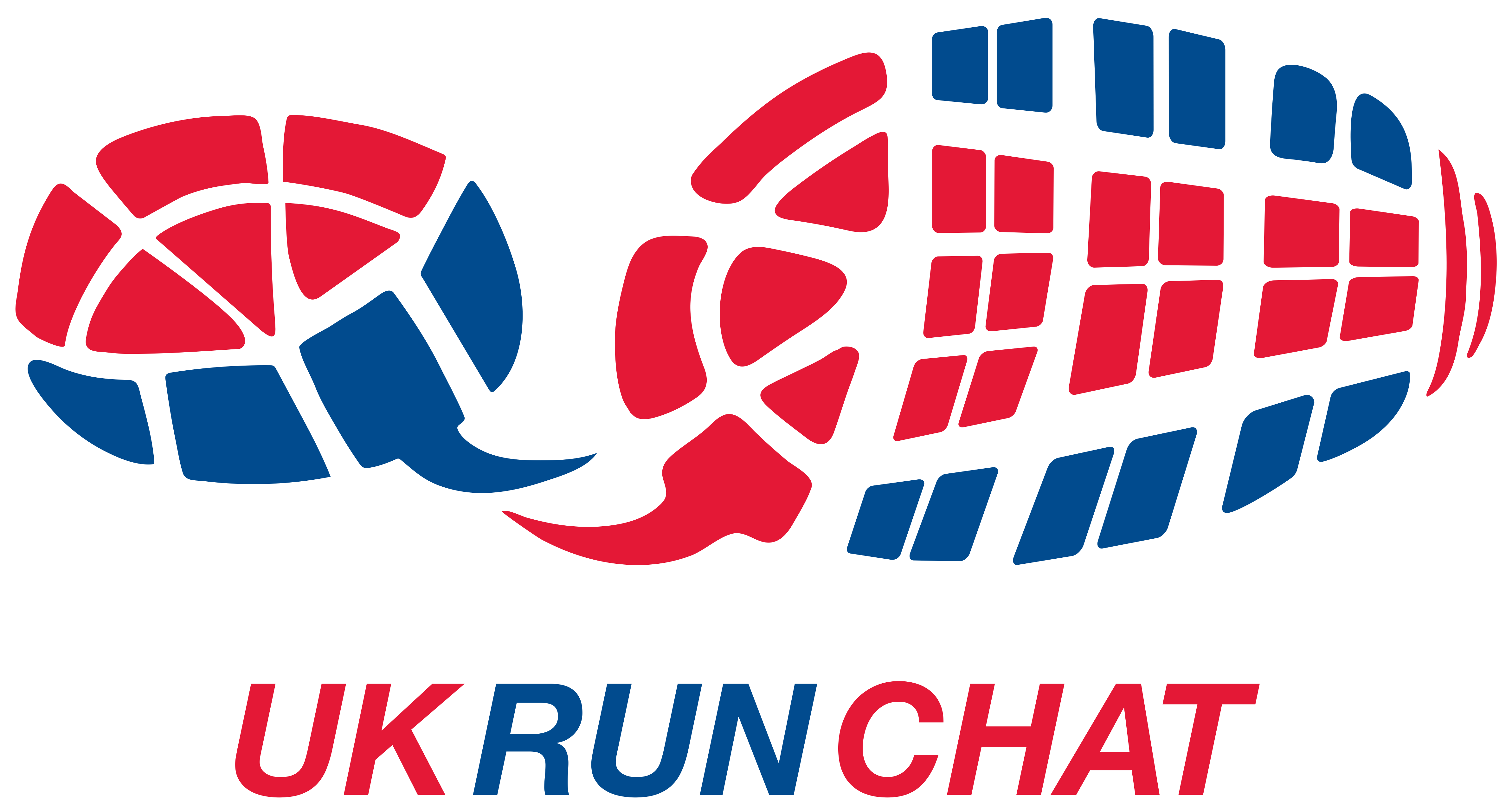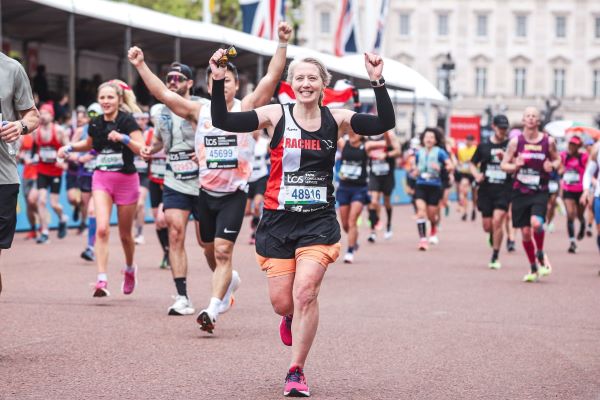We interviewed UKRunChat community member Rachel Miller about her experience of running marathons in her 40s.
Rachel’s marathon journey is a testament to the idea that age is no barrier to achieving ambitious running goals, as she is now running Good For Age times. Rachel shares her tips for first time marathoners, or those looking to improve their performance.
You can listen to the full interview with Rachel on the UKRunChat podcast
Here are the highlights.
On starting running
Rachel’s journey into running began at the age of 17 when she discovered her love for cross-country. Unlike many, Rachel embraced the challenges of cross-country and found joy in every stride. Her father’s decision to take up road running sparked a family-wide interest in the sport, leading Rachel to join the Norwich Road Runners. She recalls: “Both mum and dad did the London marathon: Dad did it 3 times, Mum’s done it twice. There’d be a club coach to London, we’d go and see them off, then we’d watch the TV and try and spot them. That’s how we grew up, watching our parents do the London Marathon and you sort of thought ‘I wonder if I can do that one day’.
Encouraged by her father, who started running at 55 and went on to complete marathons and ultramarathons, Rachel found inspiration in his determination and resilience. “He didn’t do his first marathon until he was in his early sixties,” she explains, “and he’s done ultramarathons in his late sixties. If he can do it, anyone can.”
On her first marathon
“Back in 2014 I was lucky enough to get a ballot place in London,” says Rachel. She recalls the mix of excitement and nerves as she crossed the finish line: “It was a fairly warm one, I had sunburn at the end of it, but I loved it, even the painful bits. As I came past Buckingham Palace into the Mall I just wanted to do it all over again.” It was a moment of immense pride and accomplishment, marking the beginning of a lifelong passion for marathon running.”
On getting back to marathon training after injury
“Fast forward 9 years to last year, I hadn’t done another marathon. I have Rheumatoid Arthritis and I’d had a problem with a very swollen knee for two or three years. I didn’t run for a year. It was fine though, I volunteered at parkrun, and I helped with the club.
“I was still entering the London ballot every year. At the time I was doing shorter runs because I just wanted to ease in and gradually build it up.”
Rachel recalls the absolute disbelief at hearing she had finally got a ballot place in London in 2023: “I was out walking, looking after my sister’s dogs and I just opened up my emails on my phone, standing there by the river in absolute shock, looking around for someone to tell. That was the first marathon I feel like I really trained for, with a proper training plan.”
On the London marathon experience
Rachel recalls the atmosphere of the London Marathon course: “It was brilliant to be back. I was just on a high the whole way round. I feel emotional just thinking about it. Until you’ve done it, you just can’t comprehend how loud all of those wonderful supporters are on that course, screaming your name. You make eye contact with some of them and they just go ‘come on, go for it’ and for that instant you are friends because they genuinely mean it. You feel that energy and that love. It’s just the most amazing thing.”
Rachel achieved a Good for Age time during her 2023 London marathon run, and went on to run it again in 2024 with another large personal best.
On the discipline of marathon training
“I feel like I’m only still learning about the marathon distance. It’s a strange thing, you do so many 5ks, 10ks, halves etc, but the marathon is such a different beast. You learn so much about your running, yourself, your mind, your body.”
Rachel has made a few changes to her marathon training over the past year: “Last time, when I was coming up to 22 miles, I started to have cramp threatening and I knew I had to slow down a bit, so this year I changed my fuelling strategy, and took gels at every four miles (4, 8, 12, 16) then I went to 19 because I was starting to feel like I needed more energy, and then I think I did 22.5. I had a cup of Lucozade Sport as well. So I had more gels, and didn’t have cramp. I drank more early on as well.”
“I trained five days a week this time. I got a training plan from one of the coaches at my club, who was in his day a 2:26 marathoner. I was exhausted at first, but that level of tiredness during marathon training is kind of normal.”
Rachel followed a 16 week plan, incorporating long runs, easy runs, medium distance runs, effort sessions, and tempo runs. She also usually races at parkrun: “Every Saturday is parkrun and I will usually be going for it, as I do every week. There were some weeks where I had to take it easy, but before a long run my coach said to do parkrun fast and then on the Sunday I would be running on tired legs. That definitely strengthened my head (and my legs).”
“Monday is always swimming day, so I don’t run on a Monday. I was running Tuesday, Wednesday, Thursday and then do nothing on Friday, which gives me the chance to enjoy parkrun and be ready for the Sunday run.
Rachel incorporated more cross training into this year’s marathon training cycle: “I did more strength work, and more cycling. I always swim too, it just seems to relax everything. But I added more cycling in, in the gym over the winter. The combination of the extra weights and core work definitely helped me feel stronger. I personally have to do something other than just running to give my legs a break, especially as I get older. I need more rest, but that rest can be cross training as well”.
Marathon training requires dedication and discipline, and some runs can feel tough. Rachel comments: “You really do question your life choices on [some] days, and you’re thinking, ‘Why am I doing this again?’.
Advice to others looking at doing a marathon
“Respect the marathon distance and take it slowly and sensibly,” Rachel advises. “Get a training plan. If you don’t want to get injured, have a good base fitness first. Get used to doing some races like 5k, 10k, get up to half marathon distance.”
“Don’t be afraid to rest, and don’t be afraid to stop if you’re fatigued or you’ve got any slight injuries.”
“The hardest thing about the marathon is getting to the start line. You’ve already achieved something a lot of people will never achieve by getting through that training, by believing in yourself to sign up and say ‘Yes I can do this’.






